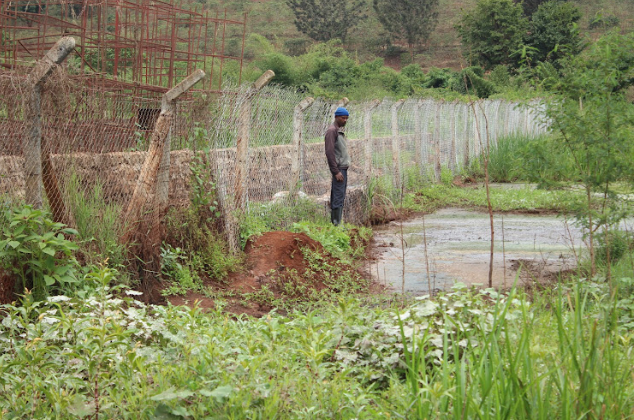Nema has been given 60 days to investigate allegations that a fruit processing factory in Kandara, Murang’a County, has been discharging effluent onto local farms.
The directive came from a multi-agency team that convened in Nguthuru following protests by residents, who claimed the factory’s effluent had rendered their farms unproductive. The residents rely on river Makindi for crop irrigation, primarily growing arrowroots. However, for the past three seasons, their livelihoods have been jeopardized as effluent from the factory flooded their fields, destroying their crops.
The effluent has reportedly flowed into the river, affecting lowlands across about 20 acres. Despite numerous complaints to the management of Persea Oils and Orchard, the residents said their concerns were ignored as they faced financial losses and struggled to support their families.
On Wednesday, the multi-agency team met with both the factory management and residents to address the issue and seek a resolution. At the meeting, residents voiced their grievances and sought compensation. Daniel Karugi, chairperson of the Nguthuru community committee, expressed relief that local leadership had responded to their concerns and facilitated the meeting.
“Let them, however, know that we will be back to the streets if they take too long to have our issues resolved,” he said.
A valuation report prepared by Muruka agriculture officer Josphat Maina on July 24 this year indicated 76 farmers had accrued up to Sh4.6 million in damages to crops.
“I visited the 76 farms on July 9 and 16 and undertook a detailed assessment. According to my observation, the company’s spillway had overflowed to the neighbouring farms and carried down to the rest of the farms through the run-off,” the officer’s letter to the company read.
“This affected the farms rendering them uncultivable. The effect of the spillway will affect farmers for a period of two seasons.”
But during the meeting officiated by deputy county commissioner Peter Maina, the factory management denied any responsibility in the destruction of the food crops.
MP Chege Njuguna urged residents and the factory management to continue meeting to resolve any upcoming issues to avoid conflict.
“The farmers say their farms have been destroyed but the factory claims it is not responsible. We want both parties to sit and get a way forward,” he said.
The lawmaker said the factory has had a positive impact in the area as it buys local avocados and provides jobs. He, however, said farmers grievances should be heard.
“As a developing nation, we support the establishment of factories but teething problems have to be there. When such conflicts come up, the best way forward is to sit and agree,” he said.
Njuguna said in three months, the Nema report will be ready, allowing for more talks between the two parties.
County Nema director Sarah Waruo said her department will be conducting an in-depth inspection of the area to establish whether the farmers claims are true.
“Farmers have made their complaints and our role is to ensure the environment is safe for all. As a multi-agency team, we will ensure that as the factory continues with its operations, it does not pollute the environment and assure farmers that we will continue monitoring the situation,” she said.
“We will assess whether farmers’ accusations are true and if they are, we will advise the factory on what it should do to ensure it operates in a clean environment. The inspection will be continuous”.
Waruo urged residents to ensure they lodge their complaints on environmental pollution early enough so appropriate action can be taken in good time.
Ndegwa Gichuru, a representative of the factory, said the investigations will help establish whether the factory is culpable.
He said the company has been prioritising residents in employments as a way of fostering a good relationship with the community.



